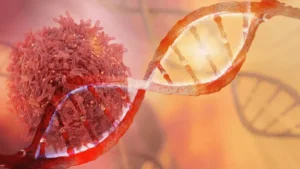
Alcohol increases your risk of developing diabetes and can make it more difficult to manage diabetes if you do have it. One of the main negative effects that diabetes can create is impaired kidney function. If alcohol increases the symptoms of diabetes, it can indirectly lead to kidney complications. Because of the diuretic effect alcohol has on the kidneys, dehydration can occur. The kidneys are essential in maintaining the body’s fluid levels and are very sensitive to hydration, detecting dehydration by recognizing when electrolyte levels become more concentrated. This conflicts with the increased urine production alcohol simultaneously creates by affecting vasopressin levels, significantly increasing the stress and strain on the kidneys by forcing them to try to produce more and less urine simultaneously.
Does Alcohol Affect Your Kidneys?
A cell’s function depends not only on receiving a continuous supply of nutrients and eliminating metabolic waste products but also on the existence of stable physical and chemical conditions in the extracellular fluid1 bathing it. Among the most important substances contributing to these conditions are water, sodium, potassium, calcium, and phosphate. Loss or retention of any one of these substances can influence the body’s handling of the others.
Kidney Structure and Function

For example, a person with a UTI that spreads to the kidneys can develop sepsis, a dangerous infection of the blood. Draw the initial manuscript, and all authors reviewed and approved the final manuscript. Whereas AKI tends to resolve with time, CKD may worsen over time — although some individuals are able to stay relatively stable with CKD with close monitoring and lifestyle changes, such as quitting alcohol. People with alcohol-induced CKD will require treatment for AUD as well as CKD. 3For a person weighing 150 pounds, this dose would be roughly equivalent to 17 drinks. When you call our team, you will speak to a Recovery Advocate who will answer any questions and perform a pre-assessment to determine your eligibility for treatment.
- The Centers for Disease Control estimates that most American adults (two out of three) drink alcohol.
- The answer to this version of the “chicken-and-egg” question remains to be elucidated.
- High urine output (called diuresis) occurs, increasing strain on the kidneys by forcing them to alter their normal levels of function.
- Renal microcirculatory alterations in advanced liver cirrhosis leads to hepatorenal syndrome.
Metabolic process of ethyl alcohol and the role of the kidney

Although most of the alcohol is metabolized in the liver, the kidneys are equally important in the metabolism and excretion of ethyl alcohol. Some enzymes that are necessary for ethanol metabolism, such as alcohol dehydrogenase, CYP2E1, and CYP24A1, have been found in the kidneys [22,23]. Furthermore, approximately 10% of ingested ethanol is excreted by the kidneys in its original form [21]. Therefore, excessive alcohol consumption places a major strain on the normal metabolic processes of the kidneys.

Acid-Base Balance Effects
Similar alterations have been found in body fluid volumes among chronic alcoholic patients. Binge drinking, defined as having four or more drinks at a time, may result in a serious condition known as acute kidney injury. This occurs when the toxins from alcohol build up in your blood quickly and your kidneys are not able to maintain the right fluid balance. Chronic or acute heart failure can lead to chronic or acute dysfunction in the kidneys, known as cardiorenal syndrome (Cleland et al. 2012). The overactivation of RAAS further aggravates oxidative stress in chronic alcoholism (Ungvari et al. 2004).

Associated Data

If you’ve already been diagnosed with cancer, drinking alcohol could also affect your risk of developing a new cancer. These are signs that the kidneys are not working as they should, and they can be symptoms of acute kidney injury due to a high alcohol consumption. Drinking is a complex social activity, and the results of many studies on the effect of alcohol consumption on CKD may be affected by many confounding factors. This makes it difficult for us to obtain reliable evidence to support our conclusions. More clinical and experimental studies are needed to confirm the effect of alcohol consumption on CKD. Additionally, the drinking pattern, integral dose of alcohol consumption, differences in alcohol beverages, and various concomitant factors should be considered, as they have a significant influence on the effects of alcohol consumption.
- However, Buja et al. suggested an inverse linear relationship between moderate alcohol consumption and the risk of age-related loss of renal function [90].
- However, the study authors also mentioned that more studies are needed to explore the connection between AUD and kidney function.
- Both acute and chronic alcohol consumption can compromise kidney function, particularly in conjunction with established liver disease.
- Ethanol and polyphenol both have anti-oxidative effects and ethanol improves polyphenol absorption, thereby contributing to bioavailability [4,5,6].
- In this study, male rats given 20-percent alcohol in their drinking water for 4 weeks experienced decreased urinary volume and sodium excretion as well as increased blood concentrations of hormones that raise blood pressure by constricting blood vessels.
- The organization adds that regular heavy drinking can lead to CKD and that this type of kidney disease does not resolve with time.
Other issues, like a family history of related conditions (not limited to kidney problems, such as obesity, heart and/or cardiovascular issues, high blood pressure, or genetics) make some people more inclined toward the development of kidney failure how does alcohol affect the kidneys than others. Alcohol, whether in moderation or excess, exacerbates kidney problems to the point of actual kidney disease. The clinic notes that acute kidney failure as the result of alcoholism can develop in a matter of days or even hours.
TAKE A FREE KIDNEY HEALTH CLASS
Some experts would contend that any alcohol is too much, but most will just advise against heavy alcohol use. Moreover, alcohol-induced renal tubular dysfunction is also reflected in vitamin reabsorption disorders. Subramanian et al. proved that chronic alcohol consumption can significantly inhibit carrier-mediated thiamin and biotin transport across the renal brush border membrane and basolateral membrane [54,55]. Kaartinen et al. found that an abnormal immunoreaction may be related to acetaldehyde, the first metabolite of ethanol, which can form covalent adducts with different proteins to activate the immune response[49].


